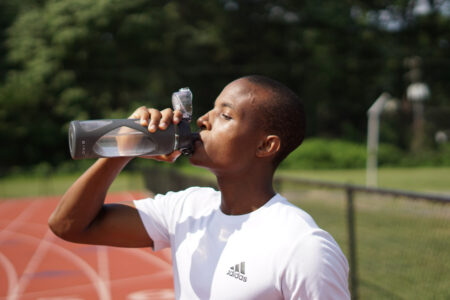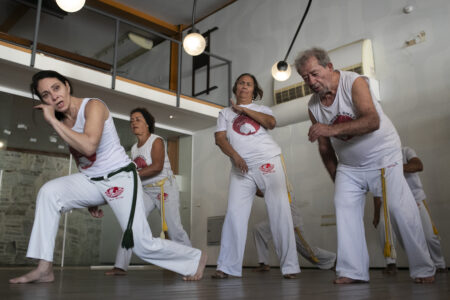Firearms and hearing loss
Owning a firearm can be an enjoyable experience; however, it is essential to practice safe firearm habits, including the protection of one’s hearing. “Gunfire is extremely harmful to unprotected ears,” stated audiologist Susan E. Terry from Broadwater Hearing Care in St. Petersburg, Fla. Gunfire produces impact noise, which is more detrimental to the ears than continuous noise. This loud burst of sound affects the eardrum, inner ear bones and cochlea, potentially resulting in permanent hearing damage. “After shooting, you may notice your hearing is impaired temporarily–a condition known as temporary threshold shift,” Terry explained. (Audiology Online)
The protection of one’s hearing is a critical aspect often overlooked in the pursuit of hobbies or professions that expose individuals to excessive noise. Among the many sounds that threaten our hearing health, gunfire stands out as particularly damaging. Whether you are an enthusiast heading to the shooting range, a competitive shooter aiming for precision or a hunter navigating the wilderness, understanding how to safeguard your hearing is very important.
Repeated exposure to loud noises increases the likelihood of permanent hearing loss. While many instances of noise-induced hearing loss are due to continuous exposure to loud sounds, a single gunshot blast can also result in permanent damage. It is recommended for individuals near gunfire to consistently use hearing protection.
To reduce these risks, it is essential to utilize effective hearing protection designed specifically for shooting sports. Options such as foam ear plugs, earmuffs or advanced digital hearing protection can significantly reduce the harmful impact of gunfire on your auditory system. While foam ear plugs provide basic defense, earmuffs offer additional coverage by enveloping the ear entirely, ensuring a secure barrier against sudden bursts of noise.
For those seeking precise sound suppression, specialty devices are available to adapt to various shooting environments, offering tailored solutions for enthusiasts and professionals alike.
Exposure to a single gunshot can cause permanent hearing loss and tinnitus. The National Institute on Deafness and Other Communication Disorders (NIDCD) states that noise levels of 85 decibels (dB) or higher can damage hearing. High-caliber firearms are louder than smaller ones, but any gunfire near an unprotected ear is harmful. USA Carry reports that a .32 LONG emits 152.4 dB, while a .44 S&W Magnum registers at 164.5 dB. “Shooter’s ear” is common among hobbyists or armed forces members, where greater hearing loss occurs in the ear opposite the shooting arm due to shielded blasts by the shoulder. Combat veterans are at high risk for this condition, alongside traumatic brain injuries leading to hearing loss or tinnitus.
Most noise-induced hearing loss is preventable. Parents should encourage children to wear hearing protection in noisy environments and lead by example. Even with protection, regular exposure to gunfire often results in hearing loss over time. Just like vision protection, hearing protection is crucial. Preventing hearing loss is better than dealing with it later. Hearing protection can reduce the severity of hearing loss, possibly treatable with hearing aids. Remove hearing aids when shooting and follow ear protection guidelines. Consult your hearing care provider for the best options. Always wear protection to preserve your current hearing. The type of protection depends on the shooting environment.
Range shooting: Because gunfire occurs at a rapid and continuous pace in this setting, typically indoors where sound is concentrated, it is advisable to wear earmuffs over foam ear plugs for optimal protection against hearing loss. Specialty earmuffs are available online or at local sporting goods stores; foam ear plugs can be purchased inexpensively at drugstores. Ensuring a comfortable fit is important to avoid the need to remove them.
Competitive skeet: In an outdoor setting where shooters are actively searching for their targets, ear muffs may not be practical. Investing in custom molded ear plugs that block all sound from rapid fire is recommended.
Hunting: It is crucial to hear surrounding sounds while hunting, so wearing ear protection that blocks all sound is not advisable. For this activity, specialty digital hearing protection which suppresses gunfire noise when the trigger is pulled is recommended. Some models, such as “hunting hearing aids,” amplify sounds to enhance all frequencies of hearing and also contain trigger noise suppression. These devices can be found online or at local sporting goods stores.
Regardless of how noisy hobbies may be, maintaining hearing health is essential. Protecting ears in noisy environments and scheduling annual hearing evaluations contribute to a good quality of life. While we are still months away from hunting season be thinking of your hearing now too.
— — — —
Jeff Bayliff is owner of Hear the Birds Hearing Aid Clinic in Lock Haven, Pa.



